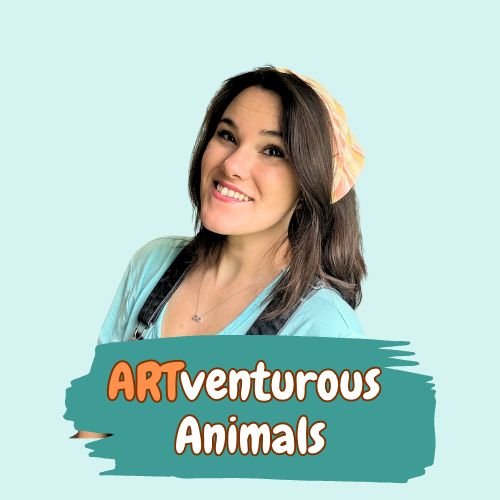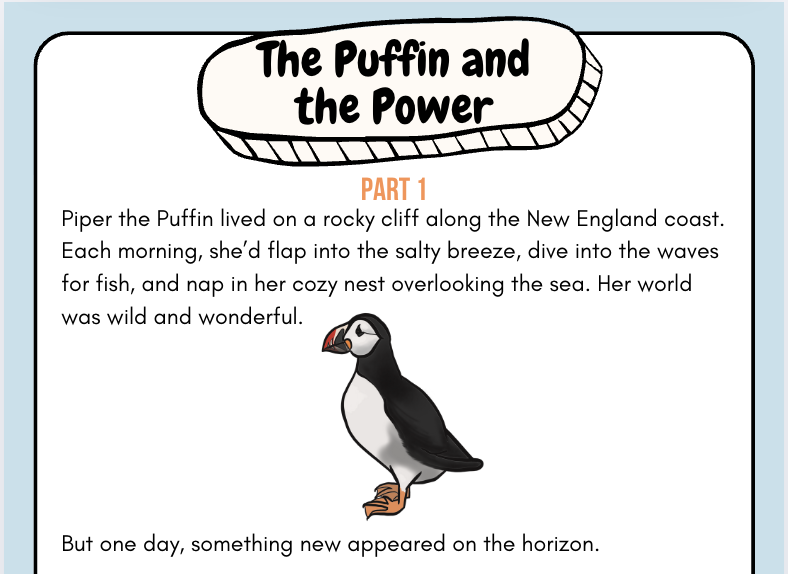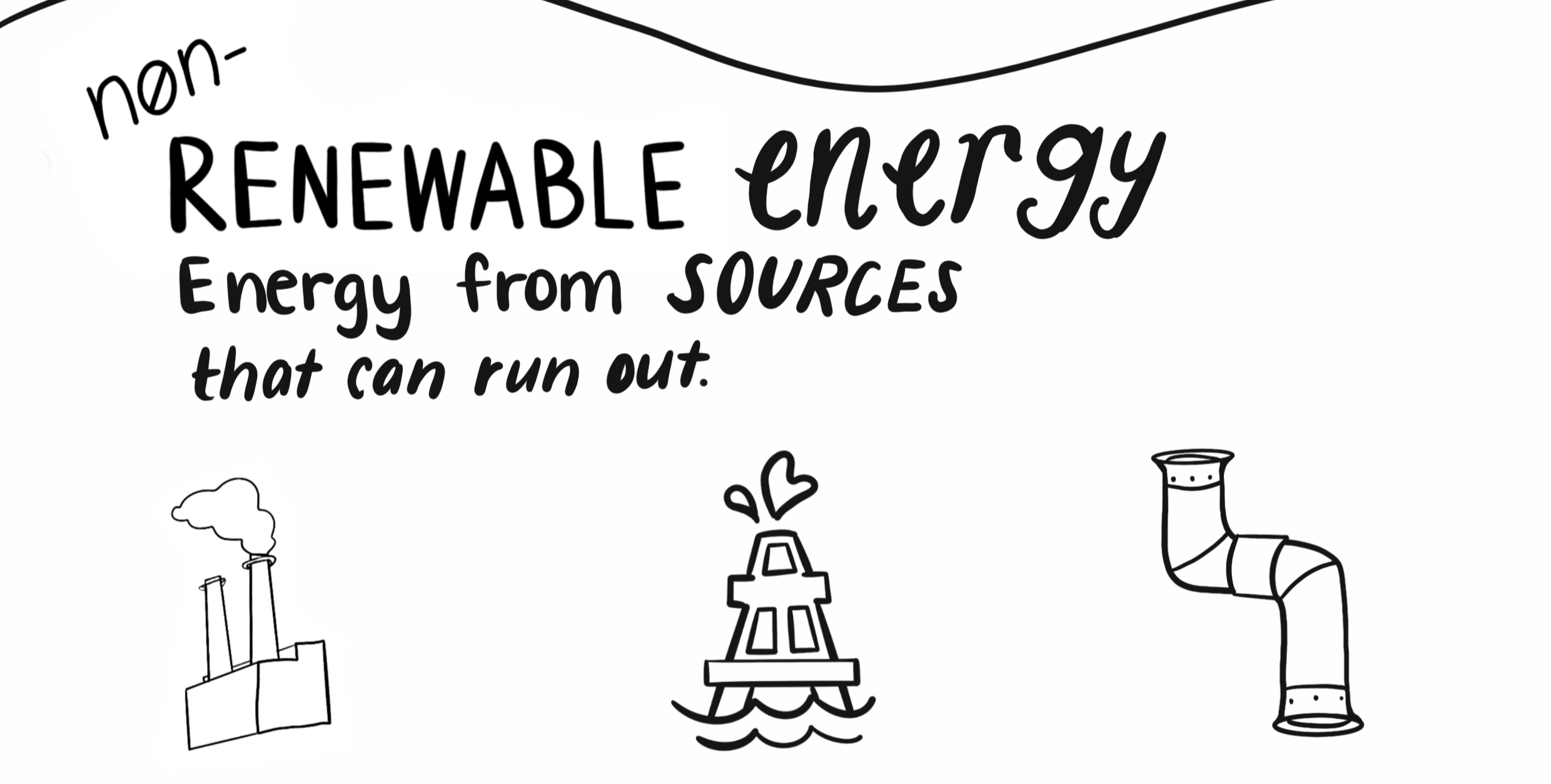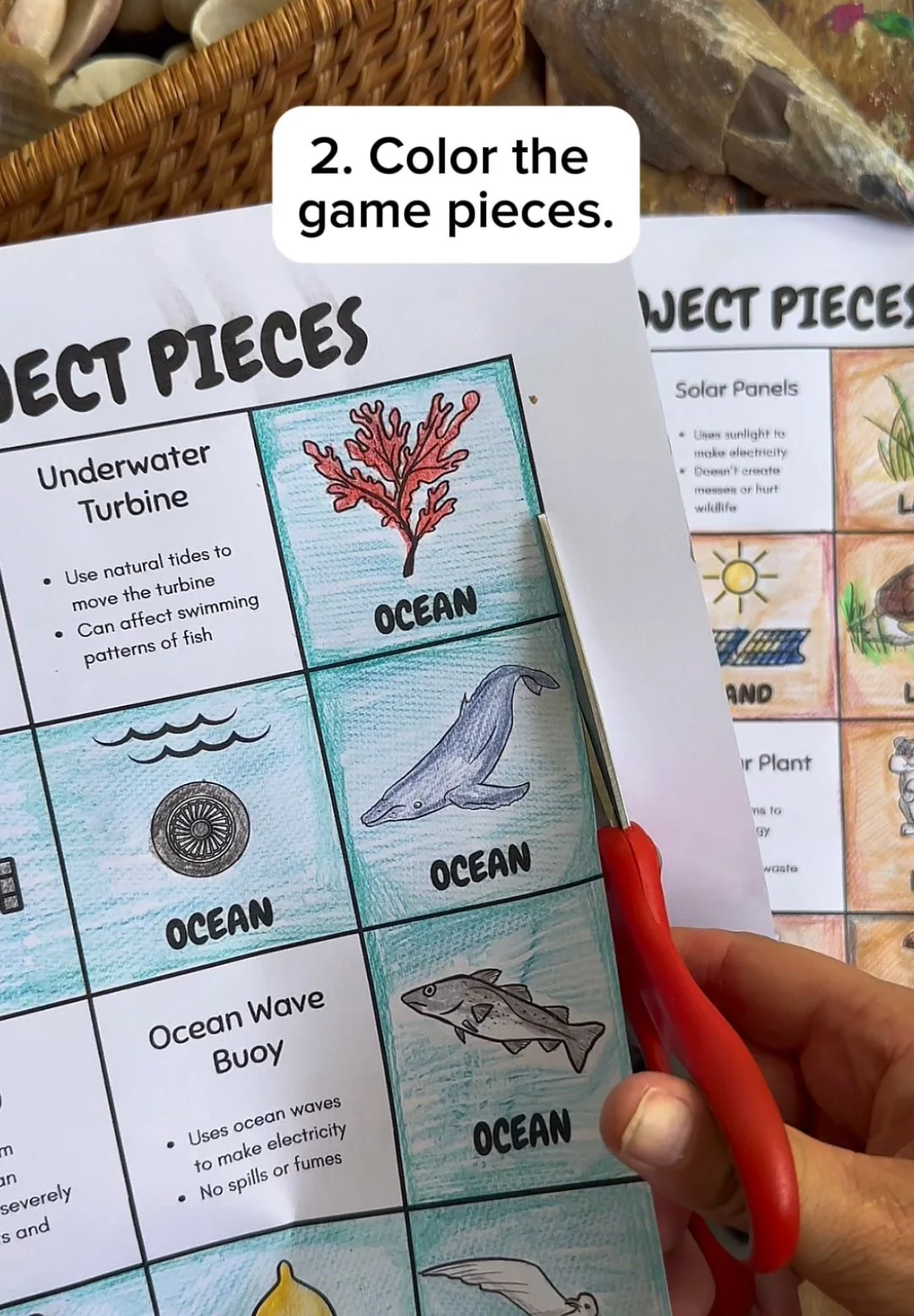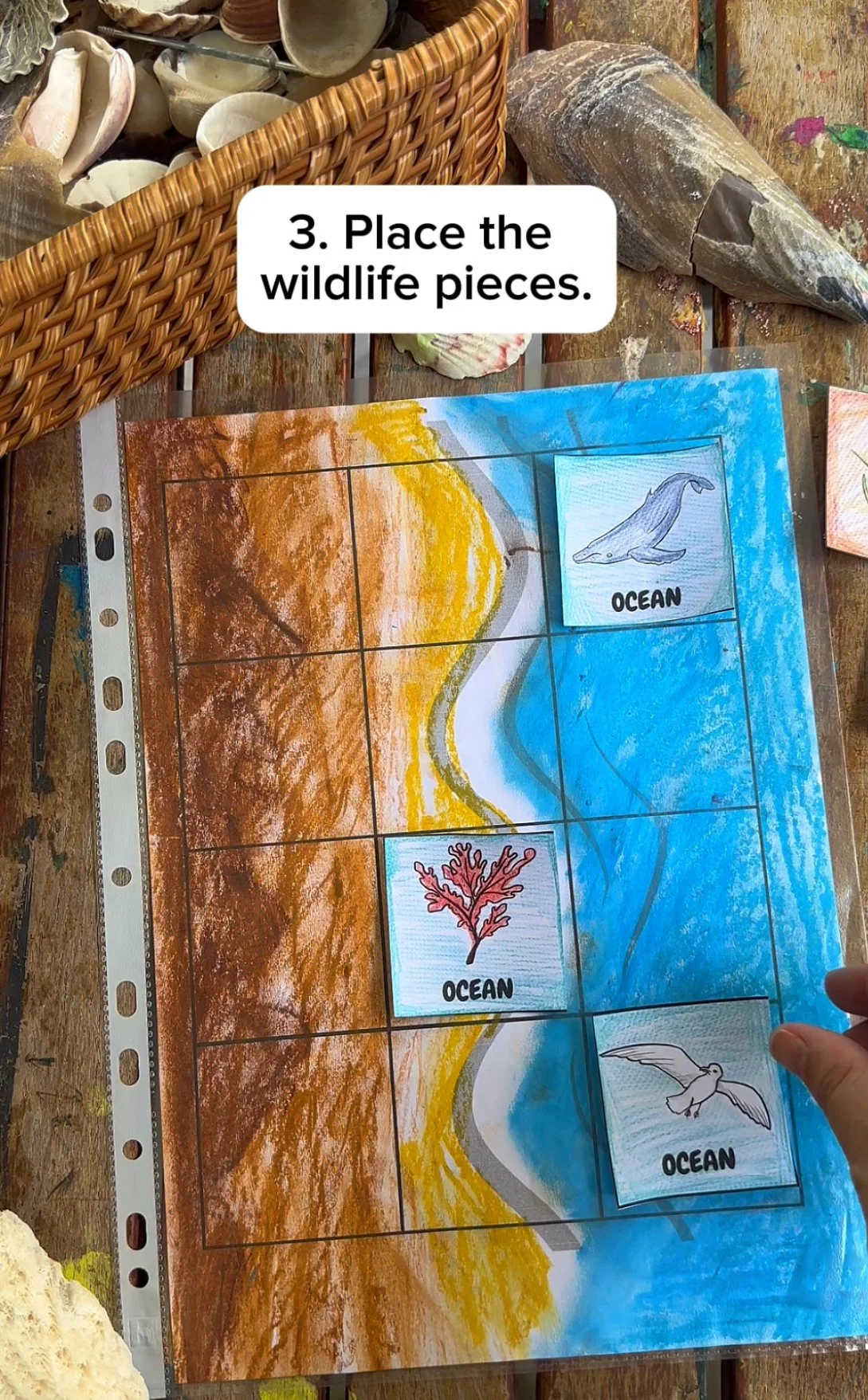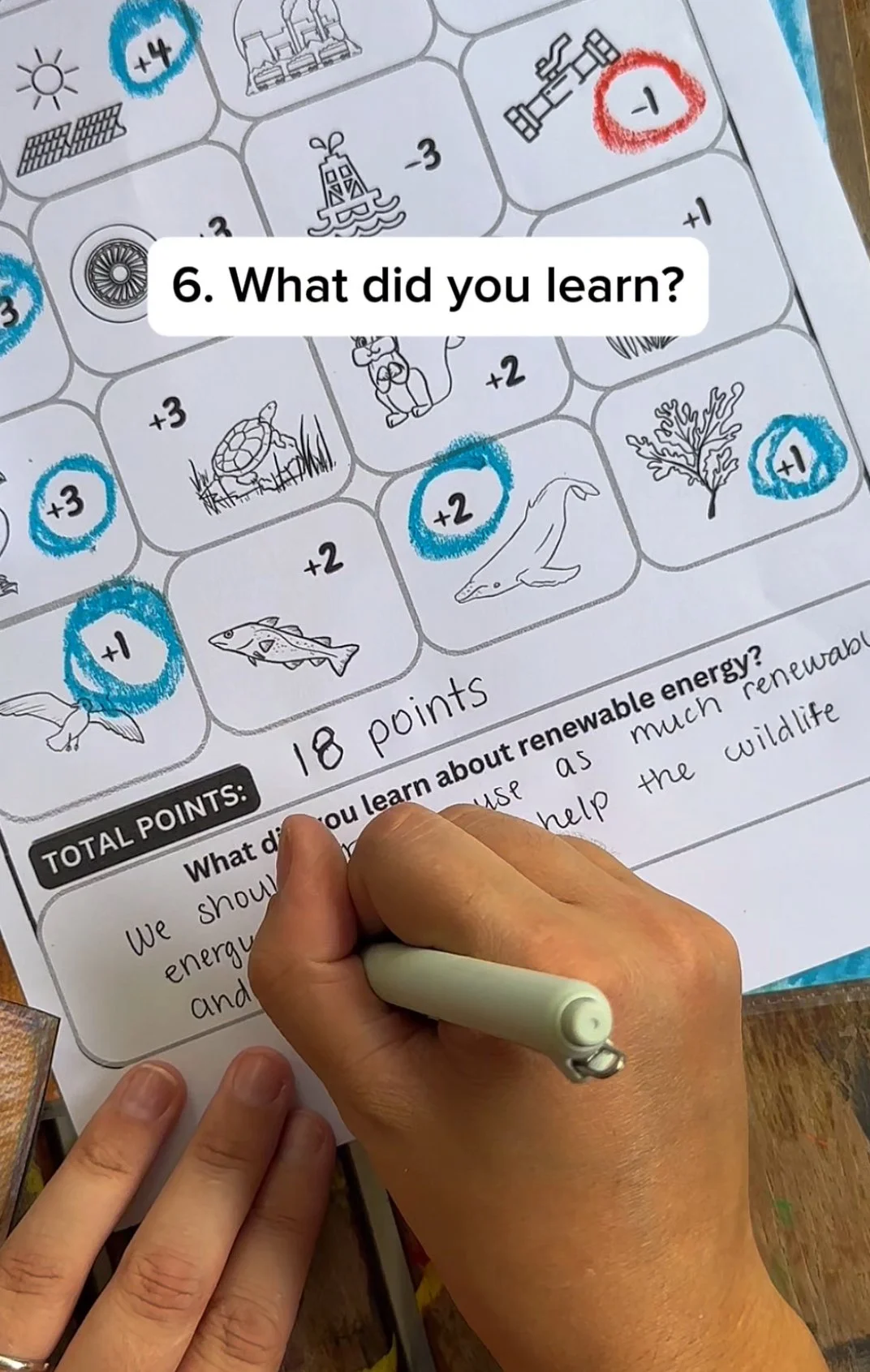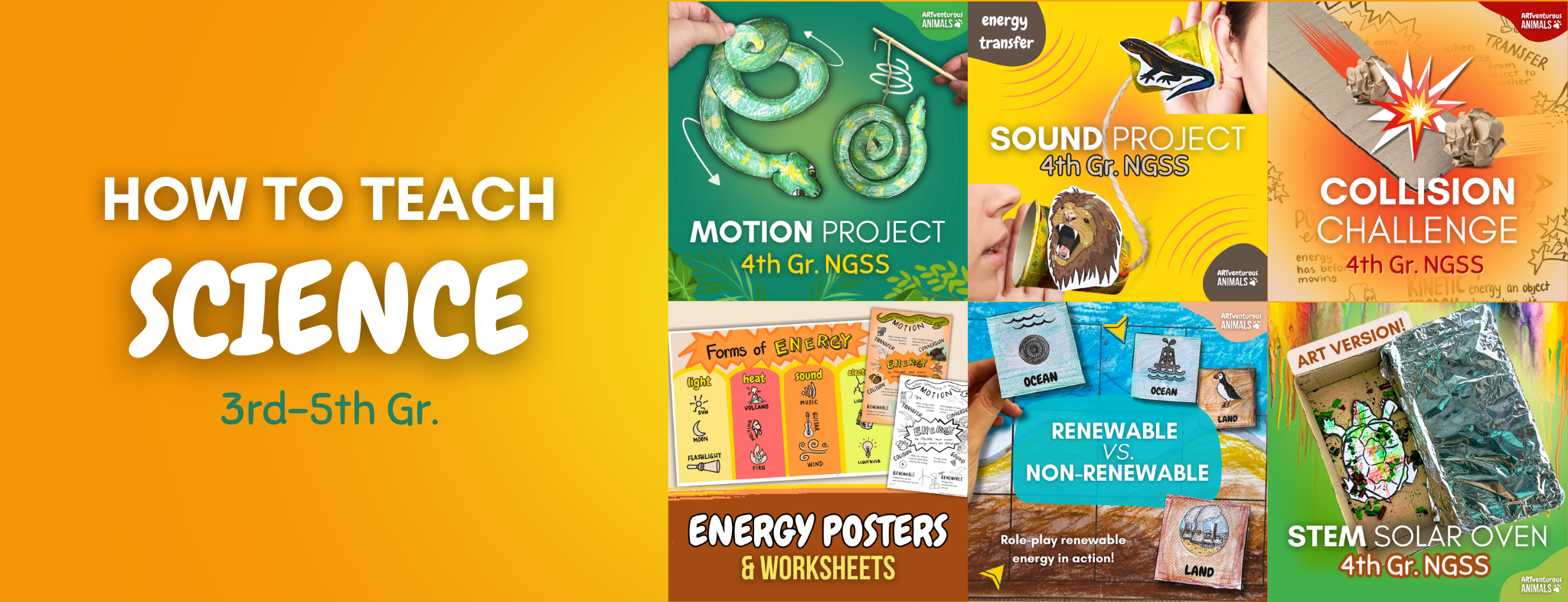Renewable Energy Game: 3rd-5th Grade Science Activity
How to Teach Natural Resources to Elementary Kids
Let’s combine the fun of an art activity with the depth of a science lesson.
You'll love how easy it is to follow this step-by-step guide, and your kids will love creating their own renewable energy board game!
Grab your free Science Activity Templates and let’s get started 🌊🧪🎨
More of an auditory learner? Watch/listen to the art tutorial here!
Scroll down to read through the art activity guide.
Grab the complete NGSS-aligned project here.
How to Teach Renewable Energy
Learn all about renewable energy sources with a few simple teaching tips!
Your students will love creating their own board game, too.
1. Begin with an interesting story about energy and animals.
“Piper the Puffin lived on a rocky cliff along the New England coast. Each morning, she’d flap into the salty breeze, dive into the waves for fish, and nap in her cozy nest overlooking the sea. Her world was wild and wonderful.
But one day, something new appeared on the horizon.”
This is one of the many intros you can use to hook your elementary student’s attention and start them wondering about energy sources.
You could also try some other animal stories!
The effects of oil rigs on humpback whales
The effects of wind turbines on flying birds
The effects of coal plants on the surrounding environment
Get the full puffin story in my Renewable Energy Project.
2. Introduce Renewable and Non-renewable Terms
There are certain terms kids need to know to be able to understand how different energy sources affect the environment. But the vocabulary portion of the lesson is usually the part where students lose the most interest! How do we get and keep their attention?
ART
You can use art to keep them engaged in several ways:
Draw out what they think the terms means
Cut and paste terms to definitions
Color in doodle notes about the topic
3. Have kids identify real-world examples
Get everyone up and moving for this next part! Have your kids move around the room, house, or classroom and look for examples of energy sources.
Make sure they connect the electricity they use daily to a local energy source.
NATURE INTEGRATION: Take them outside! They might see telephone wires, cars using gasoline, or solar panels working off of the sun’s energy.
Be ready for questions and discussion with this part!
4. Check for understanding
Make sure these terms aren’t going in one ear and out the other by checking for understanding. You could do this through a series of questions or a collaborative activity.
If you’re not wanting to create your own assessment, grab mine inside my Renewable Energy Project!
5. Hands-on project
Now let’s actually do something creative with all the information we’ve learned!
Print out the game template from the Free Science Activities Template Pack.
Scroll down to the bottom of this post for step-by-step instructions!
6. Experiment and document findings
Here’s where understanding can stop too soon. Once students have made their projects, keep asking questions.
Encourage them to get up and experiment with their games.
What did you observe about renewable energy?
What did you observe about non-renewable energy?
Why do you think humans use non-renewable energy sources?
Have them write down their answers so they can see their thoughts and draw some conclusions about natural resources.
An entire Recording Sheet with the Points Score Key is inside my Renewable Energy Project. Check it out!
🎨 ART GUIDE:
Here’s how you can use this with your kids!
Download this Free Science Activity Template Pack.
Print the worksheet and Student Guide.
Create the game board.
The game board is supposed to be a bird’s eye view of a coastline.
Color the right side blue and the left side tan or gold.
2. Color the game pieces.
Color in all the pieces. This means the energy and the wildlife game pieces.
Next, cut them out. Fold the energy game pieces down so that they can stand up on their own.
3. Start the game!
Place the wildlife pieces first.
Place at least 4 wildlife pieces first. The game works best if you have some on the land and sea.
Play 1 game piece per grid square.
4. Play the energy pieces.
Place at least 4 energy pieces.
Try to find the renewable energy pieces. There’s nothing on the cards that says for sure if it’s renewable or non-renewable, so pay close attention!
5. Add up your points (POINTS SCORE KEY)
Start with the wildlife. The more endangered the wildlife, the more points!
Then move to the energy pieces. Renewable energy = positive points
Non-renewable energy = negative points
WILDLIFE:
Puffin +3
Cod +2
Turtle +3
Seagull +1
Humpback Whale +2
Squirrel +1
Seaweed +1
Beach grass +1
RENEWABLE:
Wind turbines +5
Solar panels +4
Ocean Wave Buoy +3
Water Turbine +3
NON-RENEWABLE:
Oil Rig -3
Coal Plant -2
Nuclear Plant -3
Gas Pipe -1
6. Write down what you observed about renewable and non-renewable energy resources.
Students should be able to see how their choices affect the coastline environment.
Play over and over again, trying to get the most points possible!
I hope you enjoyed this How to Teach Guide! If you haven’t joined already, subscribe to the How to Teach Science Series to get free Science Activity Templates, tips and tricks, and exclusive content!
Renewable Energy Game FAQ
-
The Renewable Energy Game is a printable game that 3rd-5th graders can design and play. It teaches them about renewable and non-renewable energy sources, as well as the effect natural resources have on the environment.
-
You can download it by joining the How to Teach Science Series Email List right here: https://artventurousanimals.com/free-science-activities
-
You can teach your 4th graders all about renewable resources through
1. an interesting animal story intro,
2. an engaging vocabulary activity,
3. real-world connection,
4. checking for understanding with an exit ticket,
5. completing a hands-on renewable energy game,
6. and asking follow up questions while kids experiment
-
Abbey Allen at ARTventurous Animals has already done that for you! Get the complete Renewable Energy Project here: https://www.teacherspayteachers.com/Product/Renewable-Energy-Science-Activity-Natural-Resources-Game-Project-for-4th-NGSS-14235622?utm_source=Renewable%20Energy%20Blog&utm_campaign=Renewable%20Energy
Want more How-to Guides?
Check out my Blog Series!
If you make this game activity, please upload a photo in the comments below :)
Happy ARTventuring!
